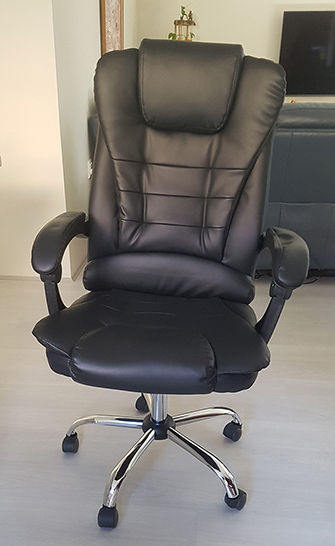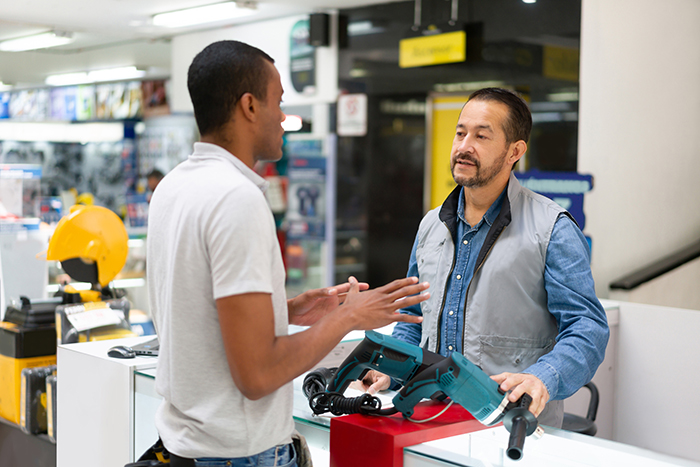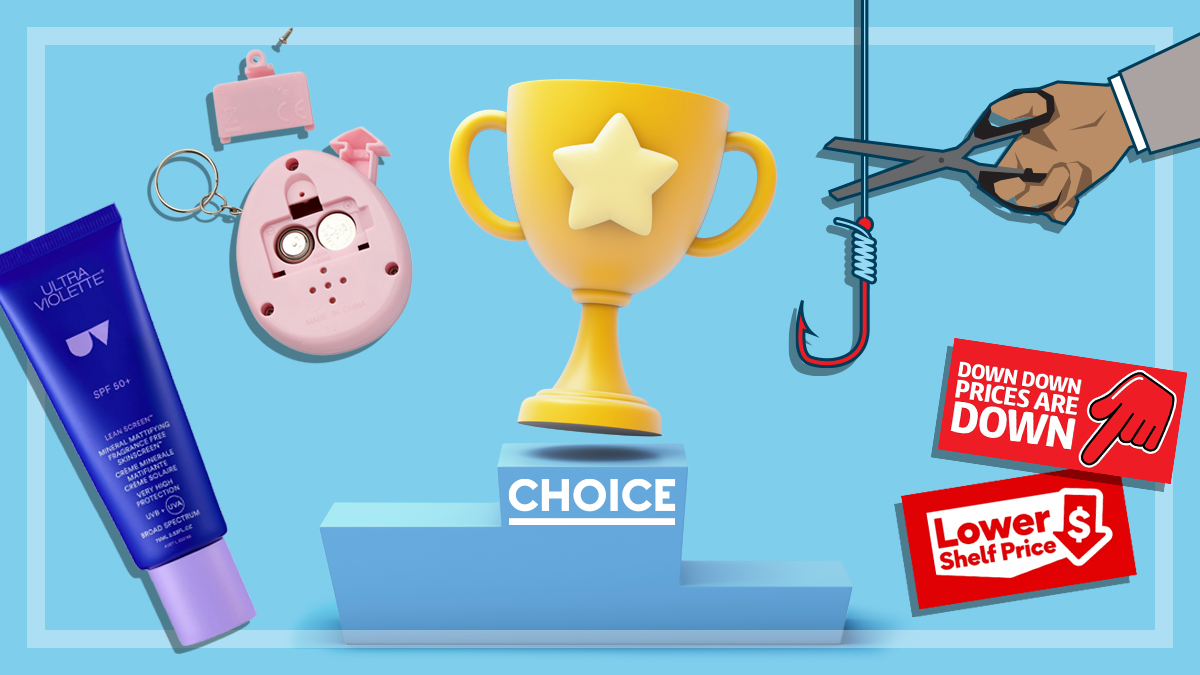Get our independent lab tests, expert reviews and honest advice.
Aussies still struggling to get refunds for faulty products

Need to know
- Australians are struggling to get refunds and replacements for dangerous and faulty products
- This is despite the introduction of laws over a decade ago that guarantee our rights when goods fail
- People say retailers are being evasive, telling them to repair products themselves and trying to hide negative feedback from other customers
On this page:
- Shoppers encountering poor-quality goods
- Evasive retailers frustrating consumers
- Disputes lasting weeks
- Delays posing serious risks
- What to do with an unsafe or faulty product
New CHOICE data shows Australians are struggling to get refunds and replacements from retailers for faulty and dangerous products, even though the law says such remedies are guaranteed.
Consumers have reported businesses being dismissive of their concerns, telling them to do their own repairs and even trying to remove negative reviews after products fail.
Over 40% didn’t attempt to return an unsafe item they had encountered in the past five years
This is despite the Australian Consumer Law (ACL) – in place since 2011 – which requires that retailers give customers a refund or replacement if they’ve sold them a product with a major fault.
The issues were laid bare in a survey of CHOICE members and supporters, which found only 24% feel confident reporting an unsafe product.
We canvassed more than 6000 people in July. When asked about their experiences over the last five years, 39% said there had been at least one instance where they hadn’t bothered reporting a dangerous product they’d encountered, and over 40% didn’t attempt to return an unsafe product.
Of those who did try to take a risky product back to where they had bought it from, 24% encountered an issue.
Shoppers encountering poor-quality goods

One of those who has had a hard time was CHOICE member Tony Preston, who endured a fruitless weeks-long battle with online retailer Catch and one of its suppliers over an office chair he purchased from the site.
Issues began appearing with the chair as soon as he had finished assembling it.
“It just didn’t support me. It started to go sideways and the chair itself had a lean,” he recalls.
“When the gas strut [that lifts and lowers the chair] collapsed, I thought ‘this is ridiculous. It’s actually getting dangerous now, because someone could tumble out and hurt themselves’.”
The ACL says retailers must offer consumers a replacement or refund if a product is unsafe and shouldn’t direct them to contact the item’s manufacturer themselves.
But when Tony contacted Catch, he was told the chair’s supplier would respond to his complaint.
Catch Marketplace, where the chair Tony bought is listed, is a section of Catch’s website that the company describes as a “curated marketplace” for “third-party sellers”.
Legal grey areas
The Australian Competition & Consumer Commission (ACCC), the consumer regulator, admitted in 2022 that because the ACL was designed to govern “traditional transactions”, there’s a “lack of clarity” as to how it applies to more modern online marketplaces like Catch’s.
Tony has little time for this ambiguity, believing Catch should have taken greater care of his concerns.
He says the company’s referral gave him the impression that they were “avoiding responsibility” for the goods they sell.
Catch didn’t respond to a request for comment.
Evasive retailers frustrating consumers
Sydney resident Jenetta Haim was also brushed off by a major retailer after she was left reeling when a kettle she bought from Kmart malfunctioned.
“One time, I turned it on… and it just flashed in my face. It was an explosive type of flash,” she says.
Feeling lucky to not have been injured, Jenetta took the item back to the discount giant.
But she says the shop staff she spoke to were dismissive of her concerns and requests for a remedy.
“They sort of said: that’s not our problem. They didn’t say those exact words, but that was the message they were trying to get through,” she says.
The experience has left her wary of returning to Kmart: “Why would you buy anything off anybody if they’re going to treat you like that?”.
Kmart didn’t respond to a request for comment.

Disputes lasting weeks
While Jenetta eventually got a refund after persisting with Kmart, other consumers like Tony have no such luck.
Following his unsatisfactory communications with Catch, Tony became embroiled in an email exchange with his office chair’s supplier, Aussie Union Group.
The back and forth lasted for weeks as he repeatedly requested his money back, but was asked to fix the chair himself with new parts supplied by Aussie Union.
“They just wouldn’t consider a refund or me sending the chair back at their expense,” Tony recalls.
After a while, you swallow your pride and just move on, put it in the bin and give them a bad review
CHOICE member Tony Preston
“They completely ignored my requests and said: ‘send a photo [of the chair] and we’ll replace the broken parts’.”
Despite being experienced at putting together office equipment, Tony says the poor quality of the replacement components he received meant the issues with the chair “went on and on” before he eventually gave up.
“After a while, you swallow your pride and just move on, put it in the bin and give them a bad review, which is what I did.”
Negative reviews disappearing

Unfortunately, the negative feedback Tony left on the Catch page advertising the chair only reignited the fruitless back and forth.
“[Aussie Union] wrote back to me saying: can [you] take the review down and send a few photographs? I basically did what they’ve done to me – I just ignored them.”
The review is no longer visible, even though Tony never agreed to its removal.
CHOICE deputy director of campaigns Andy Kelly says it’s a concerning development.
“Consumers often rely on customer reviews, which can identify concerning near-misses. Businesses shouldn’t be seeking to censor any legitimate customer reviews.”
Aussie Union Group and Catch didn’t respond to requests for comment.
Delays posing serious risks
CHOICE’s Andrew Kelly is alarmed by the trend of consumers being reluctant to come forward with faulty products.
“Many safety issues could be flying under the radar,” he says.
“Too many people are being given the runaround when it comes to trying to return unsafe goods,” he adds. “When it comes to the safety of products in our homes, this just isn’t good enough.”
CHOICE is calling on the government to introduce a general safety provision in the ACL, similar to those already in force in jurisdictions like the European Union.
Australia has a system in place to recall dangerous goods, but Kelly says a general safety provision “would create a legal duty for retailers and suppliers to ensure their products are safe before they’re sold”.
And regarding Tony’s Catch dispute, Kelly says: “It should also require online marketplaces to ensure the products sold on their platforms are safe”.
What to do with an unsafe or faulty product

“If you discover that a product is unsafe or faulty, you should contact the place of purchase immediately, outline the problem and request a remedy,” Kelly explains.
If the item has a major problem, the ACL says the seller must give you the choice of a refund or replacement.
A problem is major if it means you can’t use the item, if repairs can’t be made quickly, the product is unsafe, or if you wouldn’t have bought the item if you had known about the problem. Only one of these needs to apply to meet the benchmark of a major failure.
If a good has a minor problem, the retailer is only obliged to repair the product for free and doesn’t have to offer you a refund or replacement.
Products don’t have to be in their original packaging when you return them, but businesses can ask you for some form of proof of purchase, such as a receipt or bank statement.
It’s worth noting your consumer rights don’t protect you when you’re buying something privately, such as through Facebook Marketplace or at a garage sale.
Get more advice with our guide for what to do with a faulty product.






